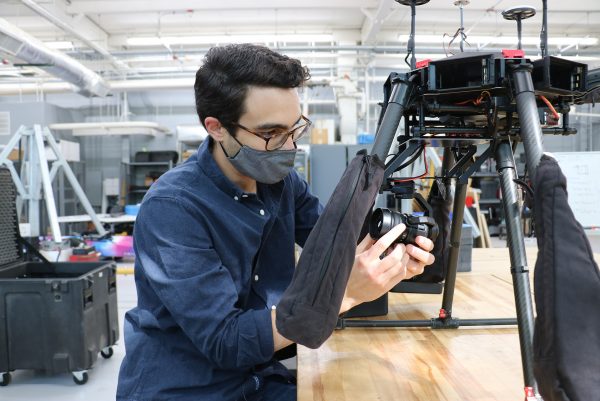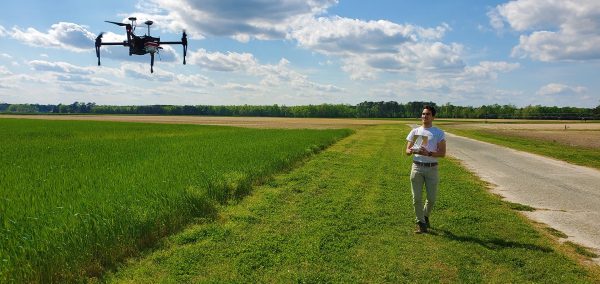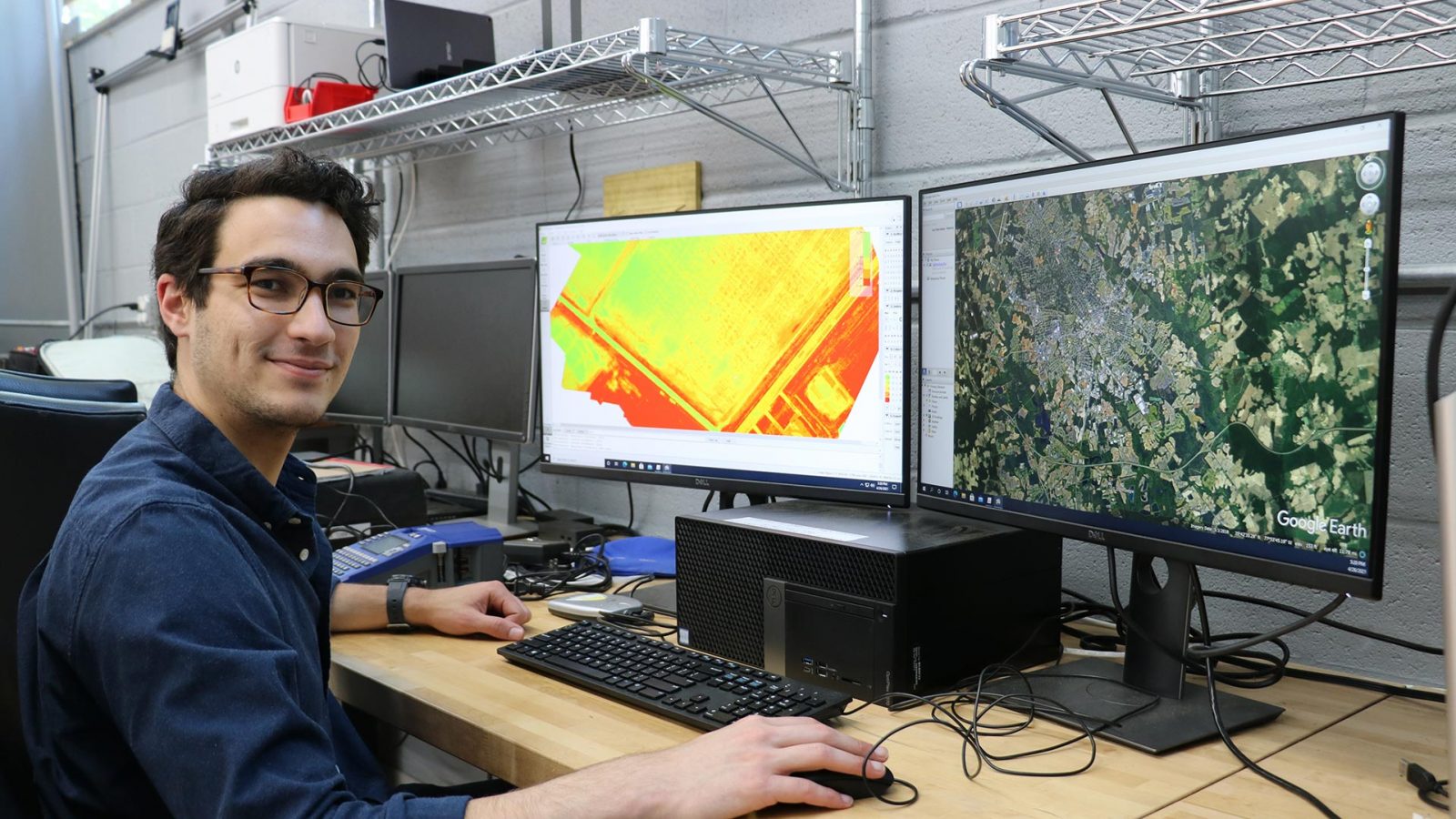Inspired by his grandfather, Manuel Arturo Pena, Enrique Pena Martinez always knew he wanted to study agriculture. As a young boy, he would visit his grandparents and spend hours watching vegetables grow in raised beds on the roof of their home. “I would forget about the world,” he recalls. “It was always such a pleasure to go there.”
His grandmother, Consuelo Ascanio Rodriguez, is the one who told him he could have a career in engineering. “My grandmother told me, ‘Enrique, what you’re going to be is an agricultural engineer.’”
His interest led Enrique to travel 1,300 miles from his home in the Dominican Republic to pursue an education in the United States. He is a recent NC State alumnus who earned the Master of Science in biological and gricultural engineering.
“There are going to be risks that you’re going to have to take,” Enrique says. “In my case, it was leaving my family behind.”
Pursuing Passion
With a specific interest in technology and agriculture, two areas that have not been thoroughly developed in the Dominican Republic, Enrique searched for opportunities to study abroad. He first studied at the Santo Domingo Institute of Technology in the Dominican Republic, and from there, he entered a 2+2 partner program with Penn State, where he completed his undergraduate degree in biological engineering with the agricultural engineering option.
“After I graduated, I still wanted to learn more about novel technologies and techniques applied to agriculture. That’s when I decided I wanted to explore the world of unoccupied aerial systems or UAS,” he says. “I started searching for some professors … that dealt with UAS technology and precision agriculture.” He found Assistant Professor and Extension Specialist Jason Ward, whose research emphasizes developing tools and techniques for agricultural data collection and analysis.

Over the last two years, a portion of Enrique’s research focused on refining cotton replanting recommendations with UAS technology. Using images to measure the distance between gaps in a field and correlating that area to the amount of yield being lost, he calculated that farmers would need approximately 40% of area occupied by gaps at least 3-feet long to justify a replant. The results from this study are being reviewed for publication in The Journal of Cotton Science.
He also assessed the accuracy of manual versus UAS counts in his research. Enrique concluded that the UAS method was more effective in assessing entire planted areas and providing more precise information to justify a replant. He also found that a replant could be justified by either method only if gaps of large sizes (greater than 3 feet) were predominant throughout the planted area. The results from this study are being reviewed for publication in Transactions of the ASABE.
“What we’re still trying to work on is being able to create a tool that incorporates drone technology … without having to go through all of the statistical and geographical analysis,” he says.
The objective is to not only demonstrate its use, but make devices user friendly so farmers are willing to adopt new forms of farming technology.

Building Global Communities
“I want to be able to connect all of the different applications that are being developed by either universities or companies around the world … and be able to translate those applications into money,” Enrique says.
He is one of three Ph.D. students recently designated as Sweet Fellows, an appropriately titled fellowship, designed by Research Assistant Professor Daniela Jones and funded by the U.S. Department of Agriculture National Needs Fellows program.
“We had a very competitive pool of applicants for the Sweet Fellow positions and were very impressed by Enrique’s background. We are looking forward to seeing the Sweet Fellows thrive in their new journey as Ph.D. students and will make sure to provide them with the right tools, skills, opportunities, and community for their success,” said Jones.
The Sweet Fellows will be part of the Sweetpotato Analytics for Produce Provenance and Scanning (SWEET-Apps) project team. The project is a multidisciplinary endeavor that aims to reduce agricultural waste and maximize yield for North Carolina’s sweet potato growers. As a Sweet Fellow, he will also become a Foundation for Food and Agriculture Research Fellow and gain valuable professional development and soft-skill training. During Enrique’s Ph.D. training, he will also become one of the first graduates of the recently developed agricultural data science graduate certificate.
“The research that I will be developing will actually bring money to many sweet potato farmers because there is a direct translation with added value on size and shape of sweet potatoes,” he explains. As the nation’s number one grower, sweet potato production is a major asset to North Carolina’s agriculture industry with an estimated value over $324 million.
Enrique notes his doctoral fellowship is symbolic for historically underrepresented populations who have limited opportunities to earn advanced degrees.
“What I want to show other underrepresented students is that we are equal, we can study, we can be successful, and we can do great things in our life. Although there is still a lot I want to do in terms of boosting Dominican agriculture, I hope that my story resonates with other underrepresented people.”
Finding Family in Unfamiliar Places
“Being able to come here to NC State, to the BAE Department, and realizing that I could find some family here. … it’s something that I can connect with, I have found some overlap with how it used to feel like in the Dominican Republic. … This has been very good for both my personal and my academic experience,” Enrique says.
Like many students studying abroad, he was not able to visit with his family for a year and half during the COVID pandemic. He recognizes the significance of having a support system and the fulfillment of having friends and family in his life.
In an address to fellow graduates last May, Enrique shared advice he received from his high school physics instructor. “Always remember your family,” he says. “Your family is, and will always be, the main constant you will have throughout your entire life.”

